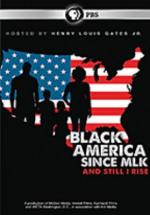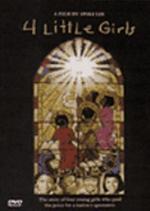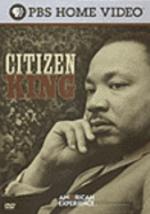February 1, 2020 | SuzyQ
Henry Louis Gates, Jr. embarks on a deeply personal journey through the last fifty years of African American history. Joined by leading scholars, celebrities, and a dynamic cast of people who shaped these years, Gates travels from the victories of the civil rights movement up to today, asking profound questions about the state of black America, and our nation as a whole.
When a bomb tears through the basement of a black Baptist church on a peaceful fall morning, it takes the lives of four young girls; Denise McNair, Carole Robertson, Cynthia Wesley and Addie Mae Collins. This racially motivated crime, taking place at a time when the civil rights movement is burning with a new flame, could have doused that flame forever. Instead it fuels a nation's outrage and brings Birmingham, Alabama to the forefront of America's concern.
Through archival interviews with James Baldwin and other footage, the story of racism in the United States in the twentieth century.
A compelling combination of storytelling and science, this series uses genealogy, oral histories, family stories and DNA to trace roots of several accomplished African Americans down through American history and back to Africa.
Poet, storyteller, actress, dancer, and passionate activist Maya Angelou gave people the freedom to think about their history in a way they never had before. Hers was a prolific life in which she inspired generations with lyrical modern African-American thought that pushed boundaries. This unprecedented film celebrates Dr. Angelou by weaving her words with rare and intimate archival photographs and videos that show her impact on the world - from her upbringing in the Depression-era South to her work with Malcolm X in Ghana to her inaugural speech for President Bill Clinton.
Documents the story of assassin, James Earl Ray, his target, Dr. Martin Luther King, Jr., and the seething, turbulent forces in American society that led these two men to their violent and tragic collision in Memphis in April of 1968.
The in-depth and intimate story of one of the most important African Americans to live in the first half of the 20th century - Jack Johnson, who was the first African American boxer to win the most coveted title in all of sports, Heavyweight Champion of the World.
Pays tribute to the many topflight players from the Negro Leagues.
On Aug. 20, 1972, more than 100,000 people attended a concert that came to be known as 'the Black Woodstock.' Staged in Los Angeles, Calif., it was in part a response to Watts Riot of 1965.
Henry Louis Gates, Jr. travels Africa exploring the archaeological sites of past civilizations..
The story of an experiment--"to see if Blacks had the intellectual and physical ability to fly an aircraft in combat." These pilots, trained in the deep South, became the Tuskegee Airmen, flying combat aircraft during World War II for their country. They had to battle on 2 fronts: the Axis powers in Europe and North Africa, and the racism at home..
Witness the compelling and dramatic story of the 1963 March on Washington, where Dr. Martin Luther King gave his stirring "I Have a Dream" speech. This watershed event in the Civil Rights Movement helped change the face of America. Recounts the events when 250,000 people came together to form the largest demonstration the young American democracy had ever seen.
The story of Jack Roosevelt Robinson, a sharecropper's son who elevated an entire race and country when he broke Major League Baseball's color barrier in 1947. The film illuminates Robinson's place as a leader and icon of the civil rights movement whose exemplary life and aspirational message of equality continues to inspire generations of Americans.
The history of the Boston-based Massachusetts 54th Colored Infantry, comprised of African American soldiers, which fought during the Civil War.
The shameful, sadistic murder of 14-year-old Emmett Till, a black boy who whistled at a white woman in a Mississippi grocery store in 1955, was a powerful catalyst for the civil rights movement.
Examines the photography, poetry, writing, music and life of Gordon Parks.
Radicals. Agitators. Troublemakers. Liberators. Called many names, the abolitionists tore the nation apart in order to create a more perfect union. Men and women, black and white, Northerners and Southerners, poor and wealthy, these passionate anti-slavery activists fought body and soul in the most important civil rights crusade in American history.
The life and legend Nina Simone, an American singer, pianist, and civil rights activist labeled the High Priestess of Soul.
In March 1931, two white women stepped from a box car in Paint Rock, Alabama to make a shocking accusation: they had been raped by nine black teenagers on the train. So began one of the most significant legal fights of the 20th century. The trial of the nine falsely accused teens would draw North and South into their sharpest conflict since the Civil War, yield two momentous Supreme Court decisions and give birth to the Civil Rights movement.
Explore the life and legacy of August Wilson, the playwright some call America's Shakespeare, who chronicled the twentieth-century black experience. Features James Earl Jones, Phylicia Rashad, Laurence Fishburne, Viola Davis, new dramatic readings, and rare footage.























